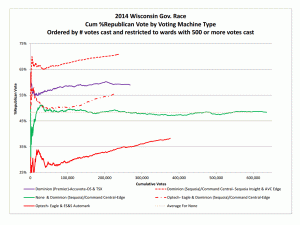The following appeared as an editorial in The Wichita Eagle.
http://www.kansas.com/opinion/opn-columns-blogs/article41620107.html
Sedgwick, Shawnee, Johnson and Wyandotte counties recently issued a poorly worded request for proposals for a new voting system. As a result, the new system on which we vote beginning in 2017 could be just as resistant to independent monitoring – and just as vulnerable to hacking – as the machines on which we vote now.
But such a catastrophe need not result if voters demand a new voting system that:
▪ Allows voters to mark paper ballots.
▪ Counts votes using open-source software.
▪ And allows postelection audits to verify election results.
These are not unreasonable requirements. Many localities, including the state of New Mexico and Douglas County here in Kansas, use paper ballots.
But it’s a different story in counties such as Sedgwick that use turn-of-the-century touch-screen electronic voting machines. The audit of 2014 election results that I am trying to do here will be difficult and expensive – assuming the courts allow me to proceed. Even if I gain access to the paper tapes on which votes are recorded in Sedgwick County, I might not be able to detect rigging of individual machines.
That’s true, in part, because the software that runs Sedgwick County’s current voting machines is proprietary – owned by the machines’ manufacturer and not accessible to researchers. This is morally wrong. Audits should be routine after every election. These should be conducted by independent auditors.
The three requirements listed above are all necessary for votes to be transparently counted and for election results to be verified and audited. If any of the requirements is compromised, election results are susceptible to undetectable tampering, as appears to be the case in Sedgwick County now.
The four counties’ request for proposals may not require paper ballots, open-source software and independent auditing, but it also doesn’t preclude them. Therefore, I propose a letter campaign regarding the RFP to Sedgwick County, which is acting as the lead agent for this contract. Voters from all four counties should insist that their public servants adopt a new voting system that is transparent and accountable.
Readers who share these concerns should express them to: Kimberly Evans, purchasing agent, Sedgwick County Division of Finance, Purchasing Office, 525 N. Main, Suite 823, Wichita, KS 67203.
